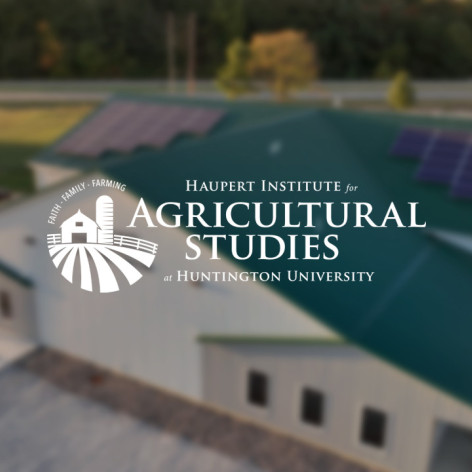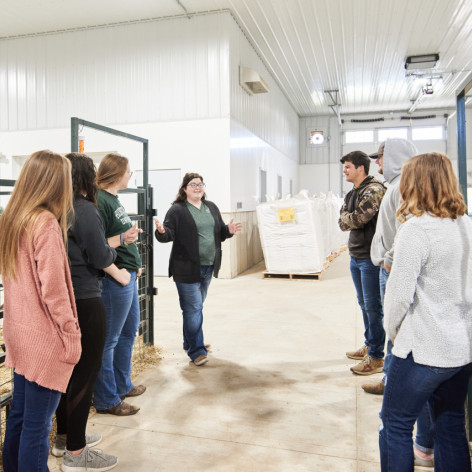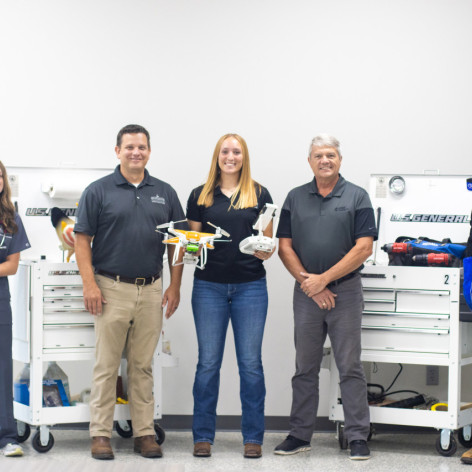Agriculture Projects Impact Guatemalan Communities
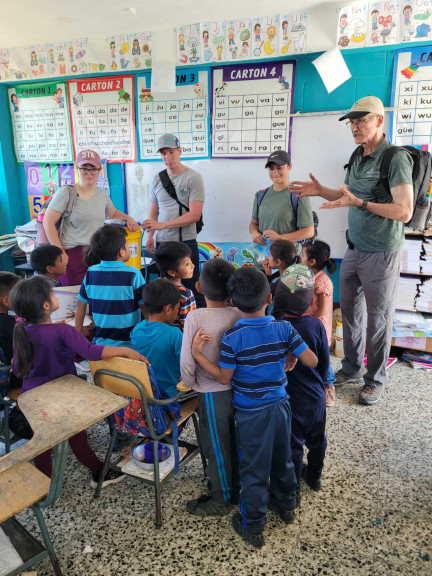
HU students, employees participate in food production, livestock and clean water initiatives in Western Highlands
HUNTINGTON, Ind. — Seven Huntington University undergraduate Haupert Institute for Agricultural Studies students and two employees put their agricultural expertise to good use, traveling to Momostenango, Guatemala, in May to serve local communities through agricultural projects in four main areas.
HU’s contingent, along with a few other college-aged young adults from southeastern states, including Mississippi, Alabama and Louisiana, and staff from the M4 Institute, completed projects focusing on greenhouse food production, sheep production, food dehydration and school-based water filtration during their week-long service in the Guatemalan Western Highlands. These initiatives not only helped Guatemalans in the present but also looked to sustainability for the future.
Forty minutes away on the outskirts of Momostenango, a group featuring mostly HU team members visited rural vegetable farmers to provide as-needed technical assistance for an existing food production operation using large greenhouses. One of the primary crops of this operation was tomatoes, a critical crop in Guatemala according to Dr. Jessica Graves, director of international capacity development with the M4 Institute and an adjunct faculty member at HU in the new international agriculture Master of Business Administration (MBA) degree concentration and graduate-level certificate program.
“Tomatoes are a staple for many Guatemalan households, so growing them to generate income has proven to be a fruitful endeavor for these two farmers,” Graves said.
Graves, who led the trip in her M4 Institute capacity, noted the impact Dr. Raymie Porter, associate professor of agriculture and the director of academic programs for the Haupert Institute, and Natalie Porter, manager of HU’s greenhouses, and their knowledge about plant production had on these visits. The Porters were able to accurately assess the health of the plants to offer invaluable advice to the farmers to help improve the sustainability of their greenhouse food production.
Later in the rural excursion, the group stopped to visit a family who owned sheep. Haupert Institute students Mary Beth Hostetler, Kylee Mumford and Abbie Timmer used their small ruminant knowledge and skills to answer questions the family had regarding health management. The trio also taught the family how to trim the hooves of the sheep and explained why proper hoof care is important. Following the demonstration, the students gifted the family with a set of hoof trimmers so the family could continue with the hoof care moving forward.
“For me, this was such a meaningful experience on the trip to see the students share their knowledge to enhance the life of [the] family by way of livestock management,” Graves said.
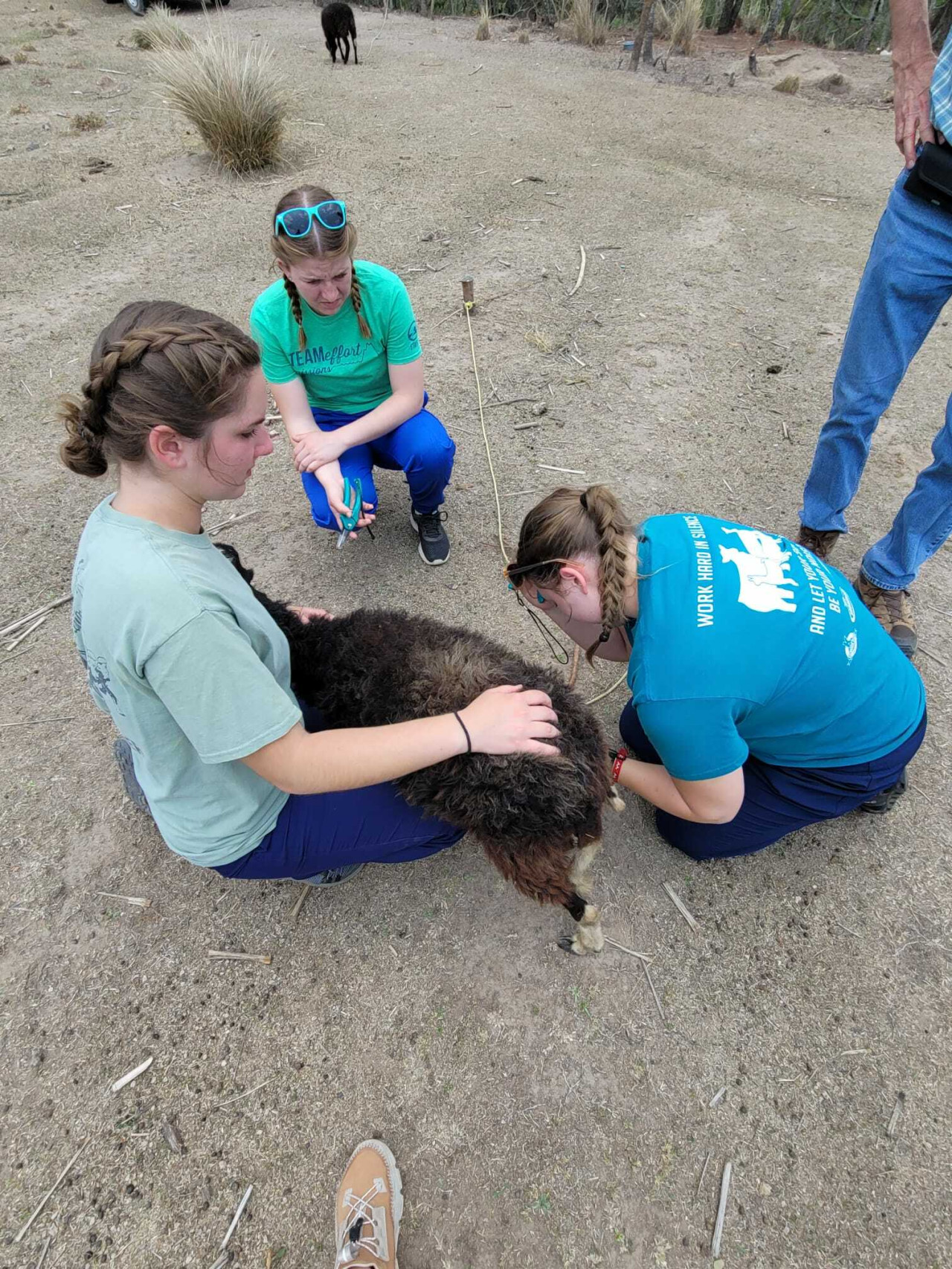 One of the most influential projects of the trip was providing a workshop about food dehydration. This is an area past M4 Institute groups have focused on, and the local community expressed a desire to learn more about the process and its importance.
One of the most influential projects of the trip was providing a workshop about food dehydration. This is an area past M4 Institute groups have focused on, and the local community expressed a desire to learn more about the process and its importance.
During the trip, the group hosted a dehydration workshop to continue educating the local community, with a particular focus on women and children. The workshop addressed how to dehydrate beef, fruits, vegetables and seasonings for preservation, a key aspect for the community in maximizing its quality of life through food.
“Providing technical assistance in producing and preserving food enables families to thrive in place, improving their local economy and enabling those families to better support their own churches out of their extra income,” Dr. Raymie Porter said. “This is always better than delivering aid in the form of food produced elsewhere, which often undercuts the efforts of local farmers to produce food for their community and the marketplace.”
Graves also made note of the importance of food dehydration due to the relative lack of access to refrigeration in Guatemala.
“The broader impact of this project is great,” Graves said. “Refrigeration is a luxury that many simply cannot afford, so having the knowledge and skills to dehydrate foods allows families the opportunity to increase the diversity of their diet and helps alleviate hunger and malnutrition.”
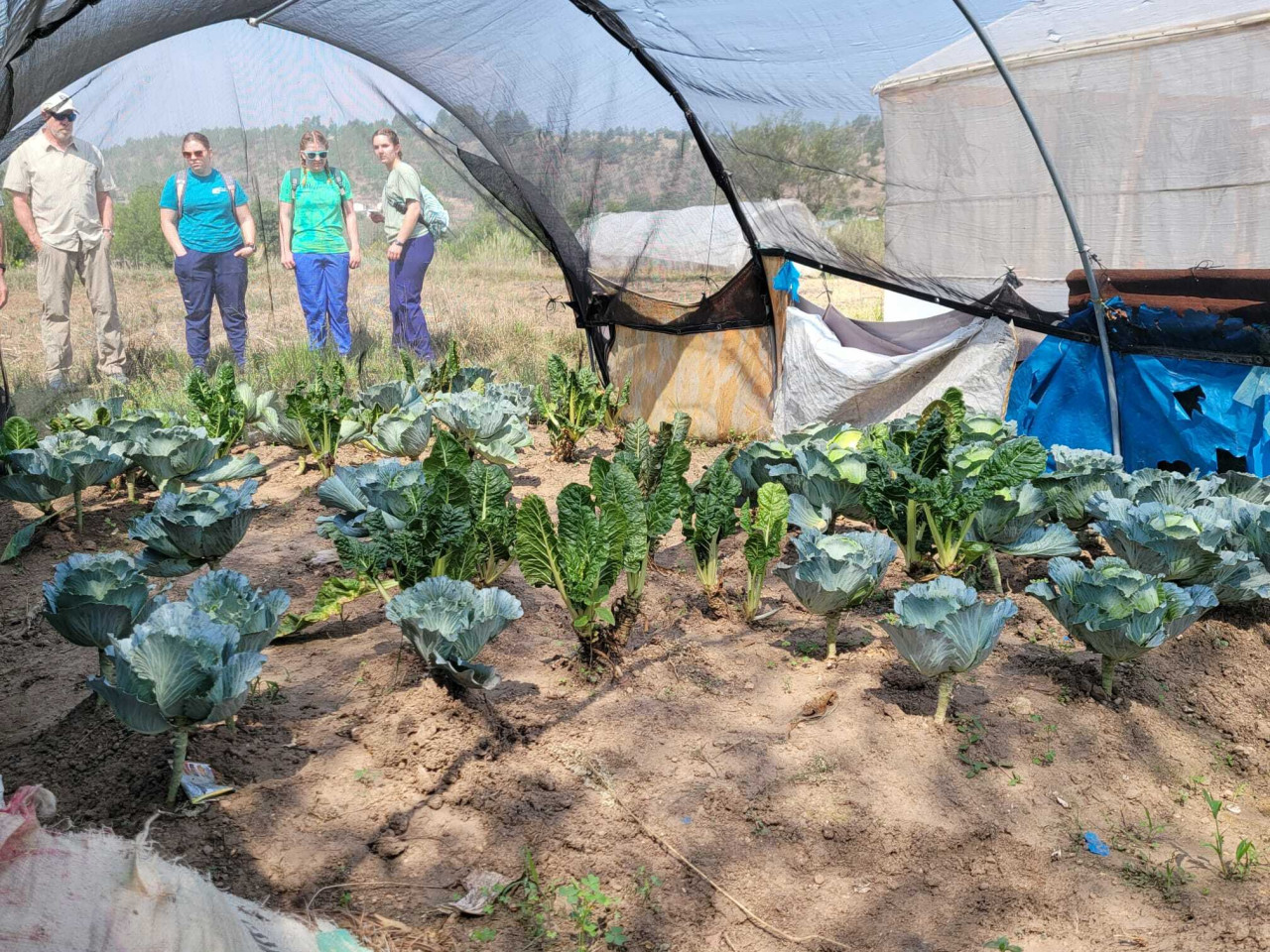 Another project the group completed that will have a widespread impact on the community was the installation of 13 water filtration systems in two local schools.
Another project the group completed that will have a widespread impact on the community was the installation of 13 water filtration systems in two local schools.
Graves shared that the impact of this project is significant, as it gives students access to reliable and safe drinking water right in their classroom. But the impact goes beyond the walls of the classroom, as it will also allow students to bring water home with them after school, which will increase their water consumption at home.
The Haupert Institute plans to return to the Western Highlands region with future trips to continue investing in the community and build upon the impact already made. Graves stated she would like to see international agriculture-focused MBA degree program students participate in travel-abroad opportunities twice during their time in the program, with the first to help them better understand the culture, agricultural and food systems, agribusiness, spiritual and physical poverty and more as it relates to coursework while the second would be to put their poverty alleviation ideas and strategies into action.
While assisting with the physical needs people have is of great importance, HU also strives to address the spiritual needs people have in the process.
“Global hunger is a problem that governmental and non-governmental organizations alike work to combat — and have for years,” Graves said. “The United Nations acknowledges this challenge and even speaks to it directly in the Sustainable Development Goals by saying, ‘The food and agricultural sector offers key solutions for development, and it is central for hunger and poverty eradication.’ I think we can all agree with this statement, but I believe, as followers of Jesus, a faith-based approach allows us to take capacity development to a deeper level addressing spiritual poverty, too. Further, Christians have been charged to fulfill the Great Commandment (Mark 12:30-31) and the Great Commission (Matthew 28:18-20). When we follow in His will and marry it with Christ-centered agricultural initiatives, we become the conduit for Christ to work through us to alleviate poverty and hunger in a way that is multi-dimensional...that’s God’s economy!”
